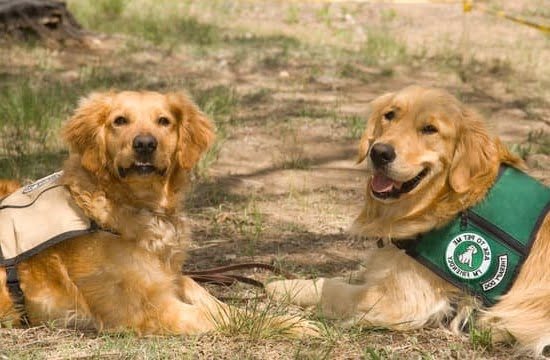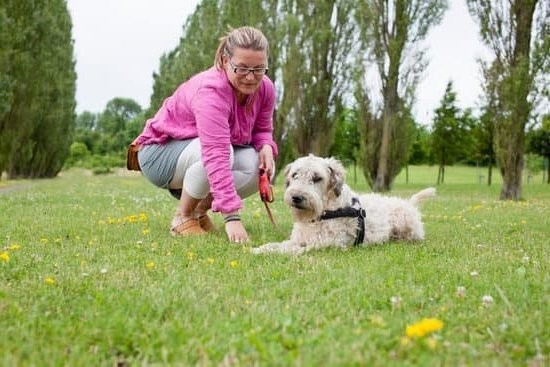Police dogs play a vital role in law enforcement, aiding officers in various tasks such as tracking suspects, detecting drugs and explosives, and apprehending criminals. Behind the scenes, there are dedicated individuals who train these highly skilled canine partners – police dog trainers. If you have a passion for dogs, a love for law enforcement, and the desire to make a difference in your community, becoming a police dog trainer may be the perfect career path for you.
In this article, we will explore the responsibilities of a police dog trainer, the job market for this field, required qualifications and skills, gaining experience, developing training knowledge, acquiring formal education, networking opportunities, applying for job opportunities, and continuing education. By following these steps and taking the necessary actions to pursue this rewarding career, you can fulfill your passion while contributing to public safety.
A police dog trainer plays an essential role in ensuring that police dogs receive proper instruction and training to perform their duties efficiently. These trainers are responsible for teaching canines commands such as obedience, agility, scent detection, and protection techniques. Additionally, they establish strong bonds with their four-legged partners through positive reinforcement methods.
A successful police dog trainer possesses not only a deep understanding of canine behavior and psychology but also excellent communication skills to effectively work with both dogs and law enforcement personnel. Aspiring trainers must also maintain physical fitness as handling large and powerful dogs requires strength and endurance.
The demand for police dog trainers is constantly increasing due to the valuable skills these individuals bring to law enforcement agencies. In recent years, there has been a growing recognition of the effectiveness of using well-trained canines alongside human officers in crime prevention and investigation.
With this demand comes various job opportunities within law enforcement agencies at local city or county levels as well as federal agencies like customs or border patrol. Exploring these potential job avenues will allow aspiring trainers to find fulfilling careers that align with their aspirations and goals.
The Job Market for Police Dog Training
The job market for police dog training is currently experiencing a high demand, making it an opportune time for individuals interested in this field to pursue a career as a police dog trainer. Law enforcement agencies across the country rely on highly trained K-9 units to assist with various tasks, including search and rescue, detecting narcotics or explosives, apprehending suspects, and providing officer protection.
As a result, the need for skilled and qualified police dog trainers is on the rise.
Current demand for police dog trainers
The increasing recognition of the invaluable contributions that police dogs make to law enforcement has led to a greater emphasis on providing extensive training for K-9 units. This has subsequently fueled the demand for police dog trainers who possess the knowledge and expertise to effectively train these working dogs. With advancements in technology and evolving criminal tactics, there is an ongoing need for trainers who can keep up-to-date with the latest training techniques and methodologies.
Exploring potential job opportunities in law enforcement agencies
Law enforcement agencies at various levels, such as local police departments, state troopers, federal agencies, and even military units, employ dedicated K-9 teams. These agencies often have their own training programs or work closely with external organizations specializing in canine training. Prospective police dog trainers can explore potential job opportunities within these agencies by researching their specific requirements and application processes.
It is important for aspiring trainers to consider the geographical location they wish to work in as employment opportunities may vary across different regions. Urban areas with higher crime rates tend to have greater need for skilled dog trainers compared to more rural areas. Additionally, being willing to relocate opens up even more possibilities and increases chances of finding job openings in desired locations.
Required Qualifications and Skills for Police Dog Trainers
Police dog trainers play a crucial role in law enforcement, training and developing the skills of police dogs. To excel in this career, individuals must possess certain qualifications and skills. The following section will outline the required qualifications and skills for aspiring police dog trainers.
Education and Certifications
Obtaining the necessary education and certifications is vital for becoming a police dog trainer. While there is no specific degree required, a background in animal behavior or a related field can be advantageous. Some police departments may require trainers to have a minimum of a high school diploma or GED.
One important certification for police dog trainers is the Certified Professional Dog Trainer-Knowledge Assessed (CPDT-KA) certification offered by the Certification Council for Professional Dog Trainers (CCPDT). This certification demonstrates expertise in training methods, behavior analysis, and canine learning theory.
Physical Fitness Requirements
Being physically fit is essential for working as a police dog trainer since it involves handling and working with highly active and powerful dogs. Trainers need to have the stamina and strength to keep up with their canine partners during training sessions or real-world scenarios.
While specific physical fitness requirements may vary among law enforcement agencies, trainers typically need to meet certain standards set by their department. These standards may include tasks such as running, jumping, climbing obstacles, or carrying heavy equipment. Maintaining good overall physical health through regular exercise and strength training is crucial for success in this career.
Interpersonal and Communication Skills
Effective communication and interpersonal skills are fundamental for police dog trainers. They must be able to effectively convey instructions to both their human counterparts (police officers) and their canine partners. Clear communication ensures that proper commands are given accurately and consistently.
Additionally, trainers often work closely with law enforcement teams or K-9 units during operations or investigations. Strong teamwork skills are essential to coordinate efforts with other members of law enforcement and work seamlessly within a team environment.
Mastering these skills can be achieved through practice and experience. Engaging in activities that enhance communication, such as public speaking or joining group training sessions, can help develop and refine these crucial skill sets.
Overall, a combination of education, certifications, physical fitness, and interpersonal skills is necessary for a successful career as a police dog trainer. By acquiring these qualifications and skills, aspiring trainers can confidently pursue their passion in this rewarding field.
| Required Qualifications | Skills |
|---|---|
| Education or background in animal behavior or related field | Effective communication |
| Certification (e.g., CPDT-KA) | Interpersonal skills |
| Fitness requirements set by individual agencies | Physical fitness |
Gaining Experience in the Field
Gaining experience in the field of police dog training is crucial for individuals aspiring to become successful police dog trainers. This section will outline various methods and opportunities for gaining practical experience in the field.
Volunteering with local law enforcement agencies
One of the most effective ways to gain experience in the field of police dog training is by volunteering with local law enforcement agencies. Many police departments have volunteer programs specifically designed to provide individuals with hands-on experience working with police dogs. Volunteers may assist with tasks such as basic obedience training, handling exercises, and socialization techniques. This experience not only provides valuable training skills but also allows individuals to become familiar with working alongside law enforcement professionals.
Joining K-9 units or working with professional dog trainers
Another way to gain valuable experience is by joining K-9 units or working closely with professional dog trainers who specialize in police dog training. By becoming a part of a K-9 unit, individuals are exposed to real-life scenarios and learn how to train dogs for specific law enforcement tasks such as search and rescue, narcotics detection, or apprehension work.
Working alongside experienced trainers helps develop technical skills, handle various breeds effectively, and understand the complexities of training dogs for different roles within law enforcement.
Participating in police dog competitive events or demonstrations
Participating in police dog competitive events or demonstrations can offer unique opportunities for hands-on experience and exposure in the field. These events showcase the abilities of trained police dogs and their handlers in various scenarios, including obedience drills, obstacle courses, tracking exercises, and criminal apprehension simulations. Participating as a volunteer or attending these events allows aspiring trainers to observe experienced professionals at work, network with industry experts, and gain insights into advanced training techniques.
Gaining experience in the field of police dog training through volunteering, joining K-9 units or working with professional trainers, and participating in competitive events or demonstrations is essential for those seeking to become successful police dog trainers. These experiences provide practical skills, expose individuals to real-life scenarios, and establish valuable connections within the industry. By actively engaging in these opportunities, aspiring trainers can further their passion and prepare themselves for a rewarding career in training police dogs.
Developing Relevant Training Knowledge
In order to excel as a police dog trainer, it is crucial to have a deep understanding of canine behavior and psychology. This knowledge will assist trainers in effectively communicating with dogs and establishing a strong bond built on trust and respect. Understanding the fundamentals of how dogs think and learn is essential for creating successful training programs.
One way to develop this knowledge is by learning about different breeds and their role in law enforcement. Each breed has unique characteristics that can impact their suitability for specific tasks in law enforcement, such as tracking or narcotics detection. By familiarizing themselves with various breeds, trainers can tailor their training approaches to meet the individual needs of each dog.
Additionally, mastering obedience, agility, scent detection, and protection training techniques is vital for police dog trainers. These skills will enable them to train dogs to perform essential tasks required in law enforcement operations, such as apprehending suspects or locating hidden objects.
Obedience training establishes control and discipline, while agility training enhances the dog’s physical fitness and coordination. Scent detection training focuses on developing the dog’s ability to identify specific odors accurately, while protection training prepares the dog for potential dangerous situations.
To acquire this relevant training knowledge, aspiring police dog trainers can engage in a variety of activities. They can attend seminars or workshops focused on canine behavior and training techniques. Professional dog trainers who specialize in police work may also offer courses or mentorship opportunities.
Moreover, participating in police dog competitive events or demonstrations can provide valuable exposure to real-life scenarios where these trained dogs showcase their abilities. This firsthand experience enhances understanding of how different techniques are applied practically and allows trainers to learn from seasoned professionals present at these events.
Acquiring Formal Training and Education
In order to become a successful police dog trainer, acquiring formal training and education is essential. This section will outline the different steps that aspiring trainers can take to gain the necessary knowledge and skills in this field.
Enrolling in police dog training academies or programs
One of the best ways to acquire formal training as a police dog trainer is by enrolling in specialized academies or programs. These institutions offer comprehensive courses that cover various aspects of canine behavior, training techniques, and law enforcement practices. Students can expect hands-on experience through practical exercises and simulations, allowing them to develop the necessary skills needed for this profession.
Pursuing courses on law enforcement, dog training, or canine behavior
In addition to specialized academies, individuals can also enroll in relevant courses at community colleges, vocational schools, or online platforms. Courses on law enforcement provide an understanding of the legal aspects associated with working as a police dog trainer. Dog training courses focus on teaching trainers about obedience training techniques, understanding different breeds, and addressing behavioral issues. Canine behavior courses delve deeper into understanding how dogs think and react in different situations.
Gaining practical experience through internships or apprenticeships
Obtaining practical experience is crucial for becoming a competent police dog trainer. Aspiring trainers can seek internships or apprenticeships with local law enforcement agencies or professional dog trainers. This allows them to observe experienced trainers at work, participate in training sessions, and gain hands-on experience with handling police dogs.
By acquiring formal training and education through academies or programs, pursuing relevant courses on law enforcement or dog training, and gaining practical experience through internships or apprenticeships, aspiring police dog trainers can enhance their knowledge and skills in this field. It is important for individuals to actively seek out these opportunities as they prepare themselves for a rewarding career in training police dogs.
Networking and Building Connections
Networking and building connections play a crucial role in the career of a police dog trainer. Developing a strong professional network can open up numerous opportunities for job prospects, mentorship, and collaboration with experts in the field. Whether you are just starting out or looking to advance your career as a police dog trainer, networking can greatly enhance your chances of success.
Attending industry conferences, seminars, and workshops is an effective way to network with professionals in the law enforcement and K-9 training community. These events provide opportunities to meet experienced trainers, exchange ideas, and stay updated on the latest advancements in dog training techniques. Additionally, participating in panel discussions or presenting at these events can establish you as an expert in the field and increase your visibility among potential employers or clients.
Connecting with current and retired police dog trainers is another valuable networking strategy. They possess years of experience and knowledge that can be invaluable to your career development. Engaging in conversations with them can provide insights into best practices, tips for success, and guidance on navigating the job market. Building relationships with these individuals not only expands your knowledge base but also opens doors to potential job opportunities through referrals.
In addition to connecting with trainers, building relationships with law enforcement professionals and K-9 unit officers is essential. These individuals work closely with police dogs on a daily basis and often have direct involvement in the hiring process for trainers. Attending community outreach events organized by local law enforcement agencies or volunteering at K-9 unit activities allows you to interact directly with officers who may have decision-making authority when it comes to hiring trainers.
By actively networking and building connections within the law enforcement and K-9 training community, aspiring police dog trainers increase their chances of finding job opportunities, receiving mentorship from experienced professionals, and establishing themselves as reputable experts in the field.
| Networking Strategies | Benefits |
|---|---|
| Attending industry conferences, seminars, and workshops | – Opportunities to meet experienced trainers
|
| Connecting with current and retired police dog trainers | – Gain insights into best practices and tips for success
|
| Building relationships with law enforcement professionals and K-9 unit officers | – Interact directly with decision-makers in hiring trainers
|
Applying for Job Opportunities
After gaining the necessary qualifications, skills, and experience in the field of police dog training, the next step is to apply for job opportunities. The application process requires careful preparation and a strategic approach to stand out among other applicants.
Crafting a compelling resume is essential when applying for a job as a police dog trainer. In addition to highlighting relevant experience and skills, it is important to showcase any certifications or formal education that has been acquired. This may include completing courses on law enforcement, dog training, or canine behavior, as well as any internships or apprenticeships that have been undertaken.
Preparing for the interview process and standardized tests is also crucial. The interview may include questions about handling challenging situations and working effectively with both dogs and law enforcement personnel. It is important to showcase excellent communication and problem-solving skills during these interviews.
To demonstrate practical training abilities, some employers may request demonstrations or simulations during the application process. This provides an opportunity to showcase proficiency in obedience, agility, scent detection, and protection training techniques. It is advisable to practice these skills beforehand to ensure a polished demonstration.
While applying for job opportunities, it is wise to keep networking and building connections within the industry. Attending industry conferences, seminars, and workshops allows for exposure to current trends and developments in police dog training while providing opportunities to connect with experienced professionals in the field. Building relationships with law enforcement professionals and K-9 unit officers can also provide valuable insight into potential job openings.
Continuing Education and Personal Growth
Being a police dog trainer is a career that requires lifelong learning and personal growth. As new techniques, technology, and theories emerge in the field of dog training, it is crucial for police dog trainers to stay up-to-date with the latest advancements. Continued education not only ensures that trainers are equipped with the most effective training methods, but it also demonstrates a commitment to professional growth and excellence.
One way for police dog trainers to continue their education is by keeping abreast of the latest advancements in dog training techniques. This can be done by reading books, research articles, and industry publications that discuss innovative approaches and methodologies for training police dogs.
Trainers can also attend seminars, workshops, and conferences that focus on canine behavior and obedience training. These events provide an opportunity to learn from industry experts, share experiences with fellow trainers, and gain valuable insights into cutting-edge practices.
In addition to staying informed about training techniques, pursuing advanced certifications or specialized training courses can further enhance a police dog trainer’s knowledge and skills. These certifications often cover specific areas such as scent detection or protection training and demonstrate expertise in those particular areas. By acquiring additional certifications, trainers can expand their job prospects and command higher salaries within the industry.
Active engagement in professional organizations related to law enforcement or K-9 units is another avenue for continuing education and personal growth. These organizations often offer resources such as webinars, online forums, and networking opportunities that allow trainers to connect with peers in the field. By participating in these communities, trainers can exchange ideas, learn from others’ experiences, and collaborate on research or projects that aim to improve police dog training practices.
Continuing education not only helps police dog trainers refine their skills but also showcases dedication towards excelling in their profession. By constantly seeking knowledge through ongoing education opportunities and staying connected with industry leaders, trainers demonstrate their commitment to providing the best possible service in training police dogs effectively. Taking advantage of these learning opportunities not only benefits trainers personally but also contributes to the overall effectiveness and quality of police dog training programs.
Conclusion
In conclusion, becoming a police dog trainer can be an incredibly rewarding career choice for individuals who have a passion for working with animals and a dedication to serving the community. Police dogs play a vital role in law enforcement, providing valuable support and assistance in various operations. As a police dog trainer, you would have the opportunity to contribute to this important work by ensuring that these canine companions are properly trained and equipped for their roles.
Throughout this article, we have explored the necessary qualifications, skills, and experiences needed to embark on a career as a police dog trainer. From gaining practical experience through volunteering and joining K-9 units, to acquiring formal training and education through academies or courses, aspiring trainers have several avenues available to them in order to develop their expertise in this field.
Networking with industry professionals and building connections within law enforcement agencies also plays a crucial role in finding job opportunities.
It is important to note that being a police dog trainer requires ongoing commitment to personal growth and continuous learning. Keeping up with the latest advancements in dog training techniques through continuing education and pursuing advanced certifications is essential in maintaining expertise. By staying connected with professional organizations and conferences, trainers have the opportunity to expand their knowledge base while connecting with like-minded individuals.

Welcome to the blog! I am a professional dog trainer and have been working with dogs for many years. In this blog, I will be discussing various topics related to dog training, including tips, tricks, and advice. I hope you find this information helpful and informative. Thanks for reading!





